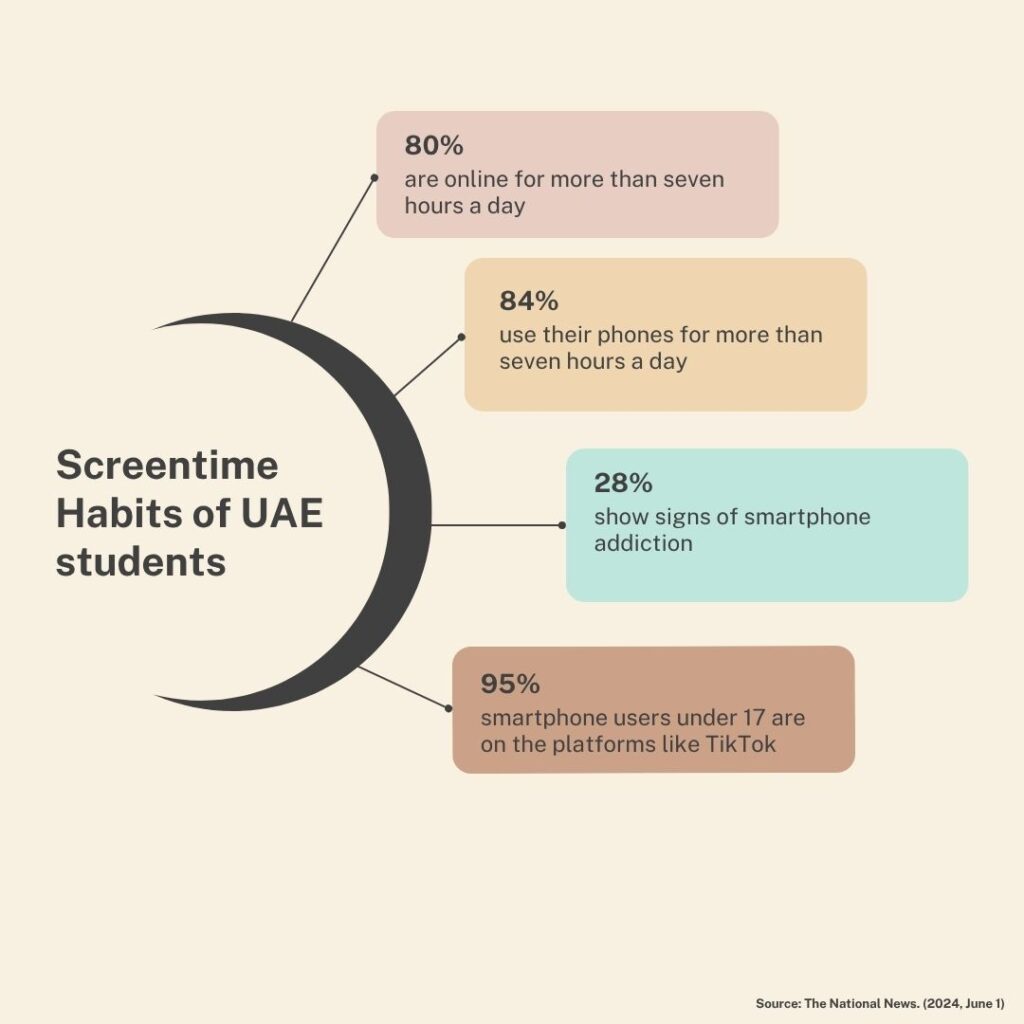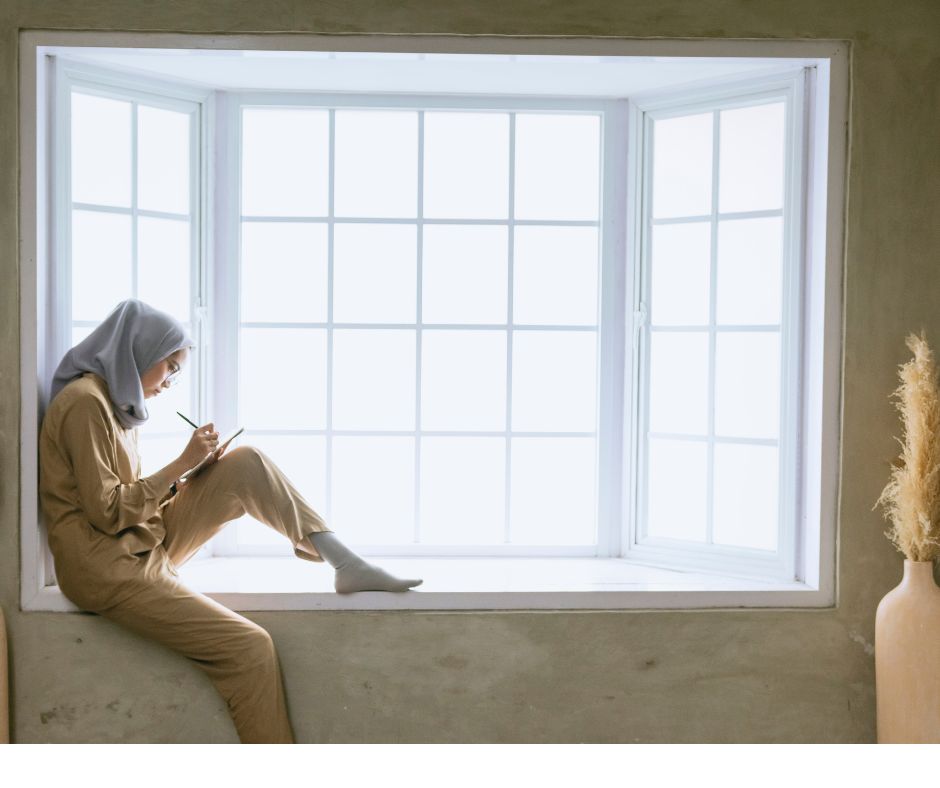Dubai takes its tech seriously. Even a brief visit to this city can solidify this notion. It is easy to see when people walk around with gadgets in places called Dubai Internet City. As early as 2017, the government made it its mission to transform Dubai by being intentional in adopting policies to be at the forefront of tech and innovation.1 Tech in Dubai also goes beyond the latest phones. It is not just about the infrastructure either. Here, the use of AI, blockchain, and fintech is ubiquitous. It is, however, a double-edged sword. Along with the many advantages comes Dubai’s tech fatigue problem.
This issue has become more relevant in recent years because of how prevalent technology is. In a 2024 study focusing on UAE students, the numbers are staggering. Eight out of 10 students are online for more than seven hours a day.2 That is a lot of screentime, to put it mildly. Although there are not too many studies on adults, results such as these show that tech fatigue is a problem worth considering.

A 2024 study published in the Intercontinental Journal of Sciences took a look at the screentime habits of 600 UAE students and their impact on academic performance.
What is Tech Fatigue?
Tech fatigue is a subjective term. This means that it is not an actual medical diagnosis. However, it is emerging as a very real issue when it comes to mental health. Studies have shown that the use of computer screens is linked to burnout.3 A recent article in The Khaleej Times offers a more extreme case. It was reported that there are cases where AI use was a contributing factor to psychosis.4
Although tech fatigue is a relatively new term, fatigue in the medical sense is not. It is described as an “overwhelming, debilitating, and sustained” exhaustion.5 A person who is fatigued is not just tired. It is a condition where they feel like it is hard to carry out daily activities. When used to reference technology, it often refers to feeling burnt out from overexposure to the different tools and platforms.
Possible Effects of Tech Fatigue
Tech fatigue is also called digital fatigue. Sometimes people give it app-specific names like Zoom fatigue. Since it is not a specific diagnosis, people tend to call it different things. However, the symptoms are similar. People who are overexposed to tech have difficulty focusing or feeling motivated. They can feel anxious and stressed. There are also somatic symptoms, such as having headaches or feeling dizzy.
Sleep Disturbances
There is evidence that shows a link between screentime, in this instance, mobile phones, and lack of sleep quality.6 Constant use of devices, especially during bedtime, can impact the duration and quality. It has also been linked to insomnia. These devices impact sleep in several ways. First, the use of phones and other gadgets tends to stimulate the brain, which delays the onset of sleep. Next, light from the screen disrupts the body’s circadian rhythm. Another is the pinging of notifications, which can wake a person.
Emotional Issues
A large part of why people feel fatigued from tech is its constant presence. According to UAE labor laws, the standard workday is eight hours or 48 hours per week. However, the work culture in Dubai can be quite competitive. People have the tendency to overperform. Even when a person is at home or off the clock, they may feel compelled to check their emails or respond to communications. This lack of boundaries can affect a person’s sense of well-being. For example, a person overwhelmed with productivity can lose sight of what matters in life.
In addition, being constantly connected through devices can exacerbate existing mental health conditions. There is some evidence that excessive use of digital tech can worsen ADHD and anxiety symptoms.7
Cognitive Effects
One of the effects of tech fatigue is cognitive issues. This can manifest as memory or concentration difficulties. For example, a person can freeze when they have to recall something or make a decision. One possible explanation for this is that tech can overwhelm a person with information. Juggling through different apps and platforms can also make it difficult to prioritize and organize tasks.
In a study focusing on employee productivity, researchers discovered a link between tech fatigue and cognitive performance. According to their research, employees had difficulty thinking clearly and coming up with creative solutions when they are overexposed to tech.8
How Can a Digital Detox Help?

There is another relatively new concept that emerged just as people became more aware of tech fatigue. This is the digital detox. This is when people intentionally limit their access to devices. It ranges from a complete unplugging to setting time limits on the use of screentime. The objective is to lessen the stress caused by technology.
Not everyone can simply remove all tech from their daily lives. It is important to come up with a plan that works for the lifestyle. For example, a person working in IT or a student taking online classes cannot completely remove the use of digital tools. They will miss out on too much. However, they can be intentional in limiting unnecessary platforms such as social media apps. In planning a digital detox, set realistic goals and limits to increase the chance of success.
Another consideration in engaging in a digital detox is acknowledging that it is not easy. For some, the connectivity is like an addiction. Think about this: how many times have you checked your phone without even thinking about it? According to the Mayo Clinic, being intentional is necessary to detox from tech. This can mean replacing the usual digital activities with something else. For example, a person can join an exercise class or pick up a book. For some, it may help to physically leave behind their devices. Try going to dinner with friends without your phone or leaving the laptop at the office. Doing this can create a boundary that is less likely to be broken.
Conclusion: Fatigue from Overexposure
It is hard to imagine a life without technology. If one does, it would seem like a nightmare. Just think about how much of it you use. It is not just about work and productivity. It is also about connection. You can keep in touch with friends and family no matter where they are in the world. Inside a typical home in Dubai, the family can gather to watch a show on their smart TV. They can laugh over the latest internet meme.
Ironically, it is this ability to connect that also leads to problems. People can feel tired and overexposed. Tech fatigue can lead to mental and physical strain. When this happens, people need to create some breathing room for themselves. They can do this through a digital detox, where people can abstain from the excessive use of gadgets to refocus.
Cited Sources:
- World Economic Forum. (2017, May). How digital technology is transforming Dubai. World Economic Forum. Retrieved from https://www.weforum.org/stories/2017/05/how-digital-technology-is-transforming-dubai/ ↩︎
- The National News. (2024, June 1). Eight out of 10 UAE students spend more than seven hours a day online, study finds. The National. https://www.thenationalnews.com/news/uae/2024/06/01/eight-out-of-10-uae-students-spend-more-than-seven-hours-a-day-online-study-finds/ ↩︎
- Dawson D, Ian Noy Y, Härmä M, Akerstedt T, Belenky G. Modelling fatigue and the use of fatigue models in work settings. Accid Anal Prev. 2011 Mar;43(2):549–64. doi: 10.1016/j.aap.2009.12.030.S0001-4575(10)00005-9 ↩︎
- Gerber, J. (2025, July 18). UAE: ChatGPT is driving some people to psychosis; here’s why. Khaleej Times. Updated July 19, 2025. Retrieved July 20, 2025, from https://www.khaleejtimes.com/lifestyle/mental-health/chatgpt-psychosis ↩︎
- Matura LA, Malone S, Jamie-Lara R, et al. A systematic review of biological mechanisms of fatigue in chronic illness. Biol Res Nurs. 2018 Jul;20(4): 410–421. doi:10.1177/1099800418764326 ↩︎
- Takeshi Munezawa, Yoshitaka Kaneita, Yoneatsu Osaki, Hideyuki Kanda, Masumi Minowa, Kenji Suzuki, Susumu Higuchi, Junichiro Mori, Ryuichiro Yamamoto, Takashi Ohida, The Association between Use of Mobile Phones after Lights Out and Sleep Disturbances among Japanese Adolescents: A Nationwide Cross-Sectional Survey, Sleep, Volume 34, Issue 8, 1 August 2011, Pages 1013–1020, https://doi.org/10.5665/SLEEP.1152 ↩︎
- George MJ, Russell MA, Piontak JR, Odgers CL. Concurrent and Subsequent Associations Between Daily Digital Technology Use and High-Risk Adolescents’ Mental Health Symptoms. Child Dev. 2018;89(1):78-88. doi:10.1111/cdev.12819 ↩︎
- Supriyadi, T., Sulistiasih, S., Rahmi, K. H., Pramono, B., & Fahrudin, A. (2025). The impact of digital fatigue on employee productivity and well-being: A scoping literature review. Environment and Social Psychology, 10(2). https://doi.org/10.59429/esp.v10i2.3420 ↩︎
